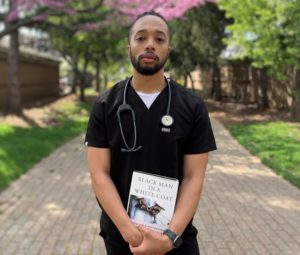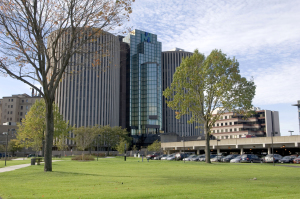By Morgan Whaley, Research Assistant, Center for Health Equity Engagement Education and Research
According to the Association of American Medical Colleges, only 5% of doctors are African American. Black medical school students and residents face many challenges in their journey and their profession. NPR’s article, “Being Mentored Helps Black Medical Students Face Isolation, Racial Microaggressions” details these struggles from a student perspective. Jamal Hill, a black fourth-year medical student, faced many uncomfortable and problematic conversations in hospitals and classrooms. For example, he described hearing that how some patients did not want black doctors. The article dives into how medical students and residents not only face barriers of racism and economics but also social barriers. In addition to experiencing micro and macro aggressions in their field and financial stressors, they also experience not being able to navigate school and residency because of a lack of social capital. At an individual level, social capital is having interpersonal relationships and connections. These relationships are resources to success in many fields/groups. Social capital also includes the ability to prescribe to community identity.

Farah Yousry/WFYI
Source: NPR Article.
Social capital is not equal to all or widely accessible to all. Within medical school, it can be hard for low-income and black students to acquire social capital because they do not share the identities of the majority. Lacking social capital also makes it harder to build connections and form networks. Oftentimes, this leads to feelings of isolation and hinders performance. One major way to overcome this through mentorship. A mentor can help students and residents create networks for success and support. It also helps them navigate the “intense pressures of medical school”. NPR also spoke to the chief diversity and inclusion officer at the Accreditation Council of Graduate Medical Education, Dr. Williams McDade. He recounts his experience being a mentor. Not only can it be a challenge to find mentorship and build networks, but it can also be hard to be a mentor. He describes being judged by colleagues for focusing efforts on “student-centered work” in his career, with people telling him the work was “not promotable”. Despite this, Dr.McDade continued to support students and be a mentor.
Mentorship and representation are more important than people realize. It means a lot to have people in your corner, not only rooting for you, but who can help you. One individual in the article, Dr. Brittani James, described how damaging it was for the hallways of her medical school to only depict white men. It made her feel like she didn’t belong where she was. She ultimately had to take a leave of absence for a year. During that year she did community work in black and brown communities, where she spent time with, “People who fill me up, that said, ‘you know, your perspective doesn’t match medicine, but that’s the exact reason why you need to be here.’ People who saw my humanity.”

